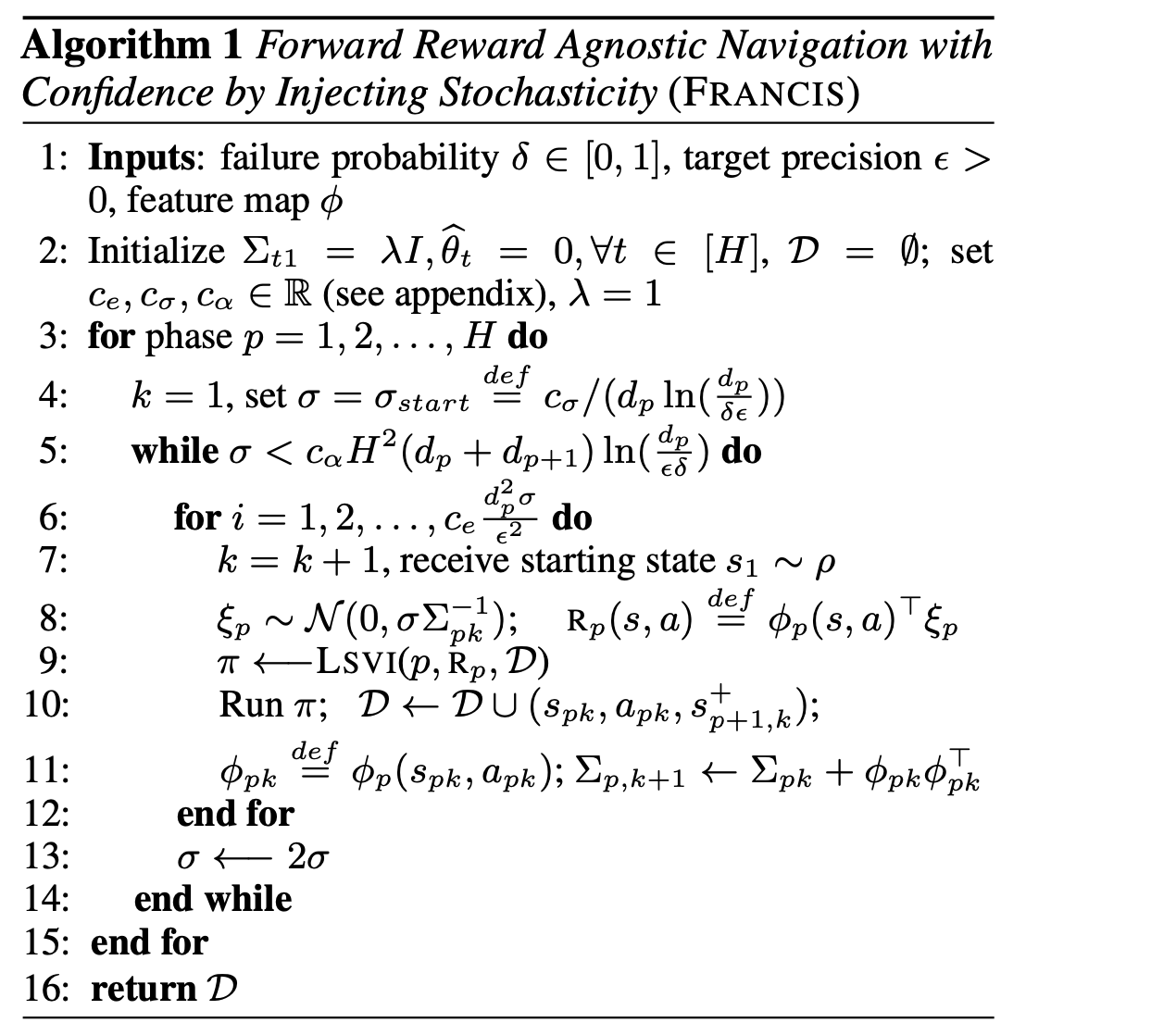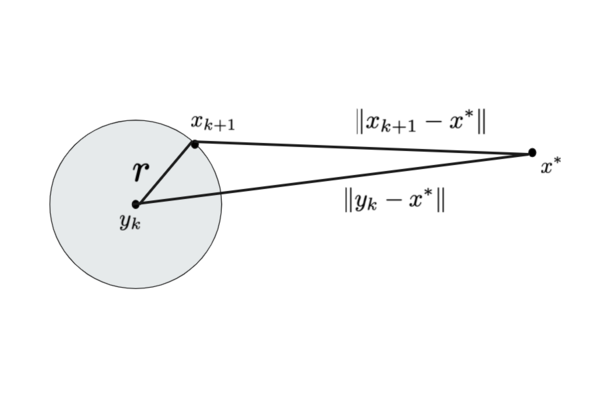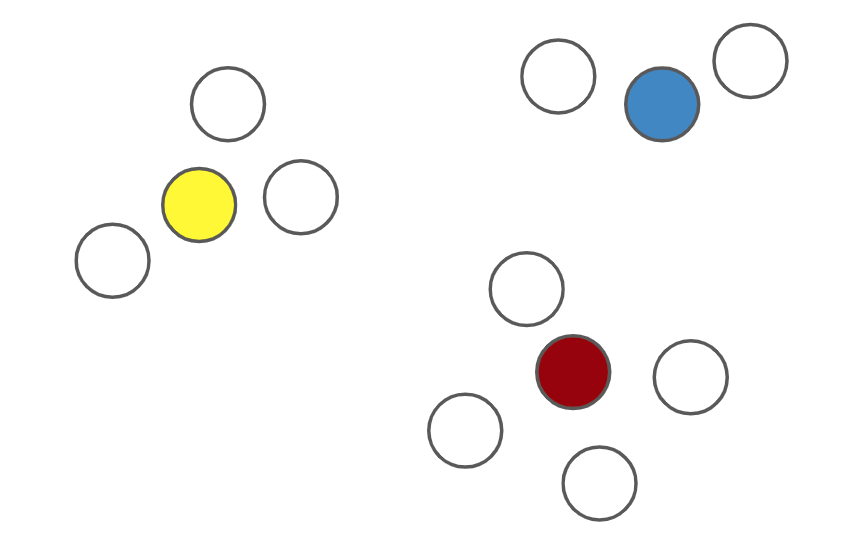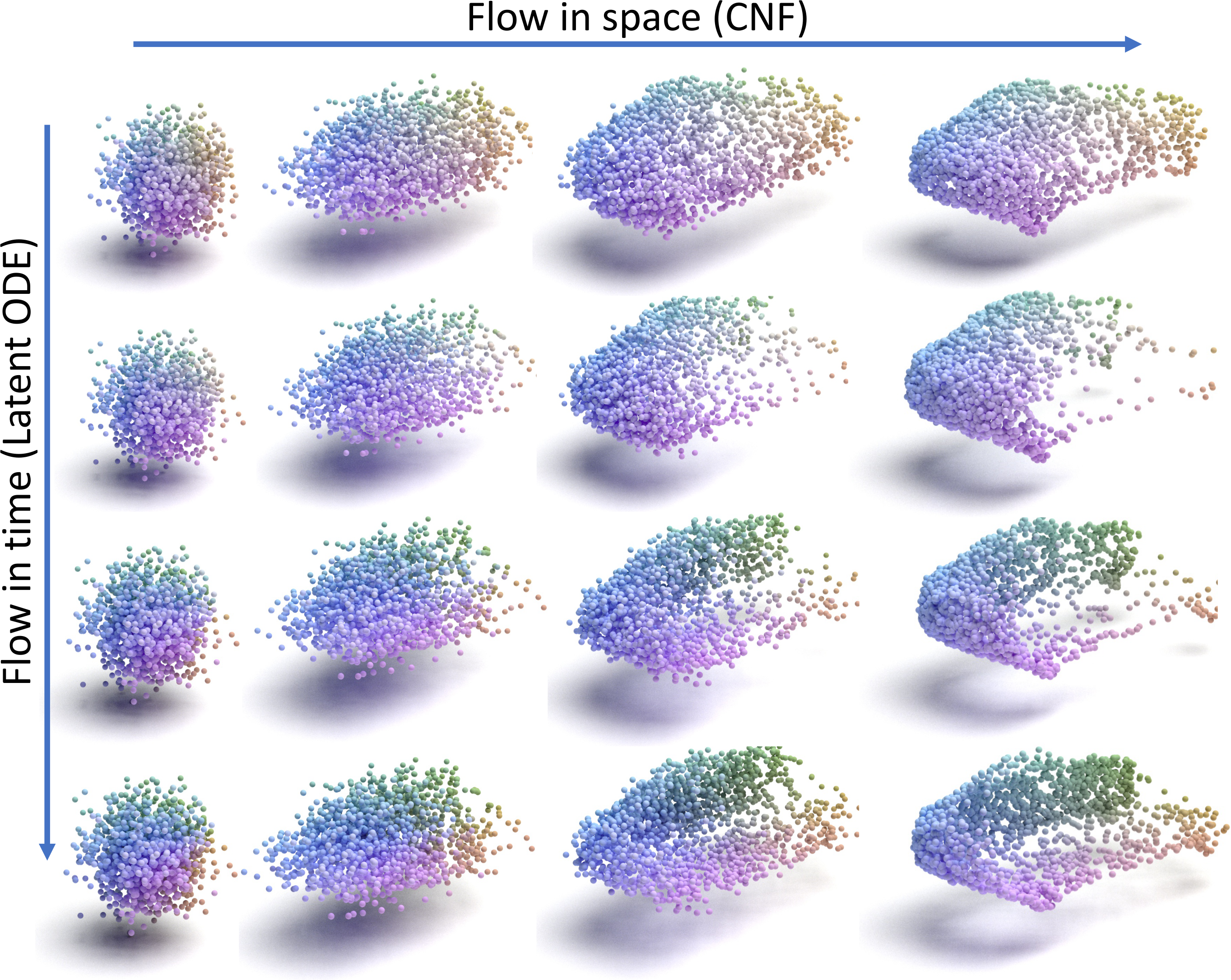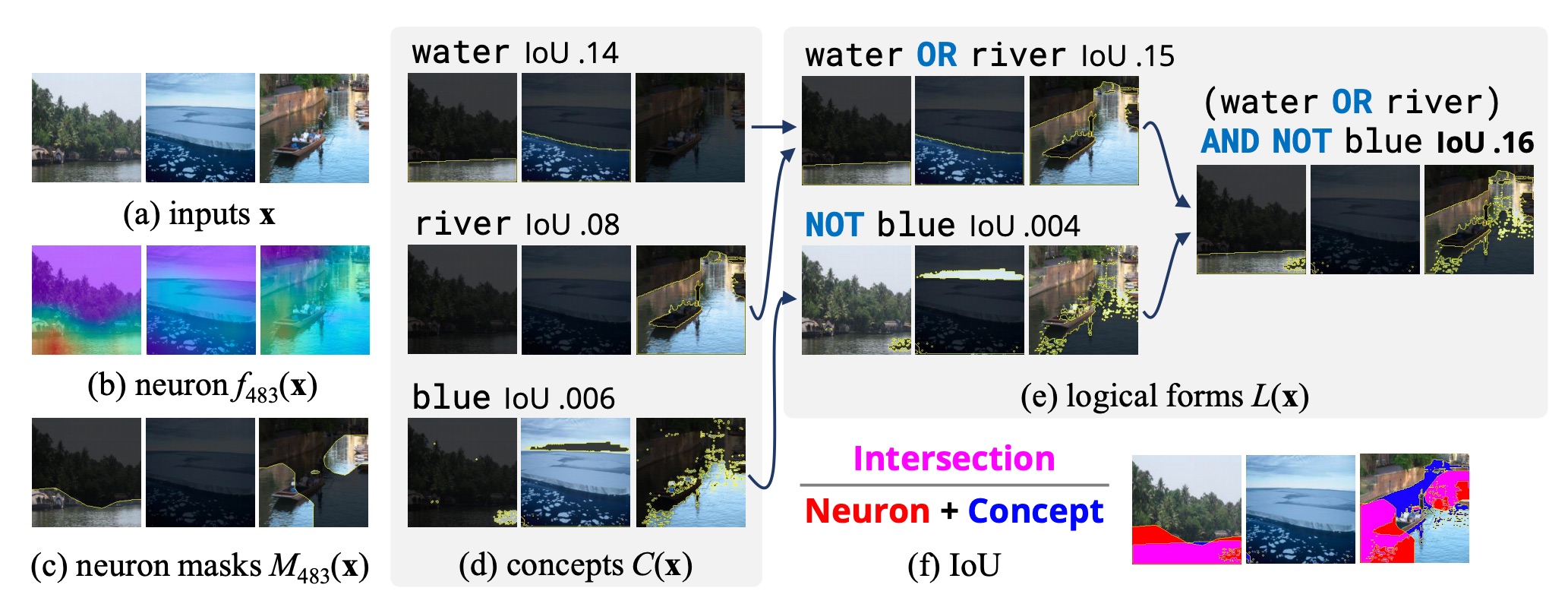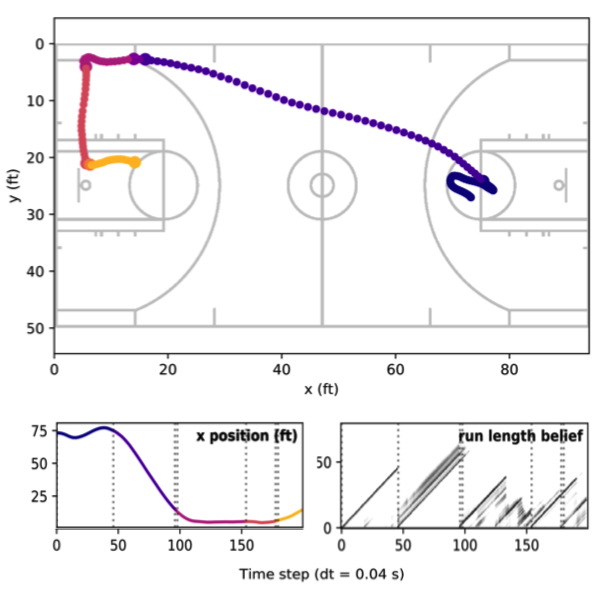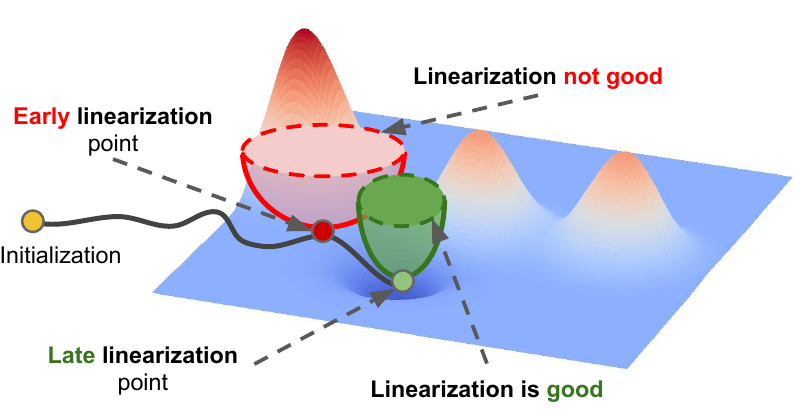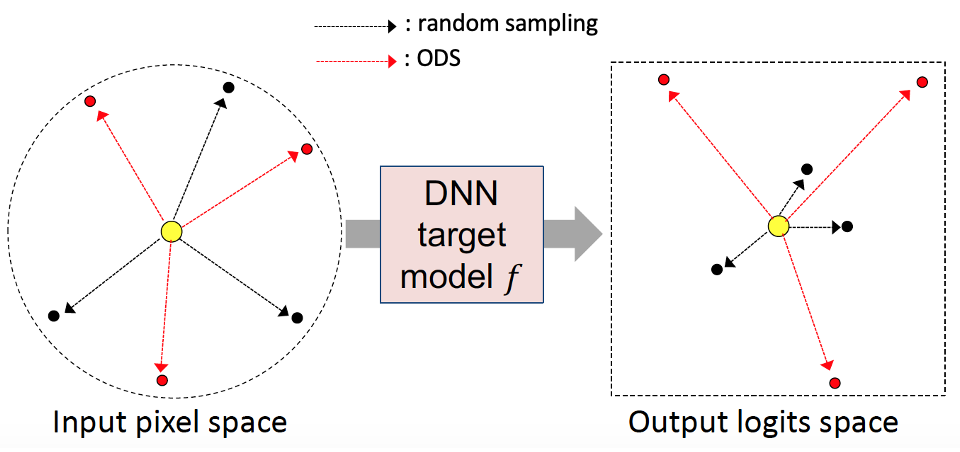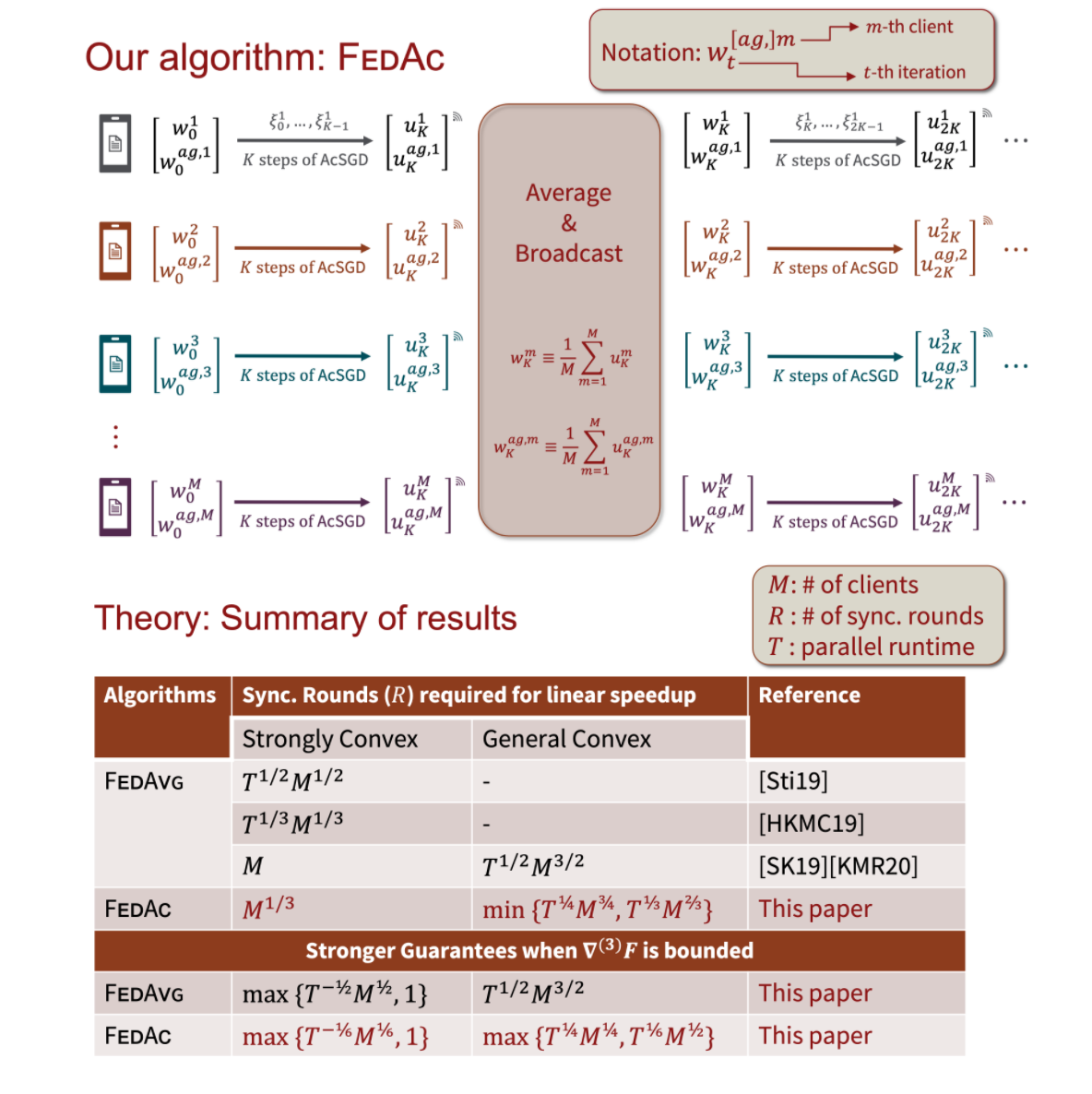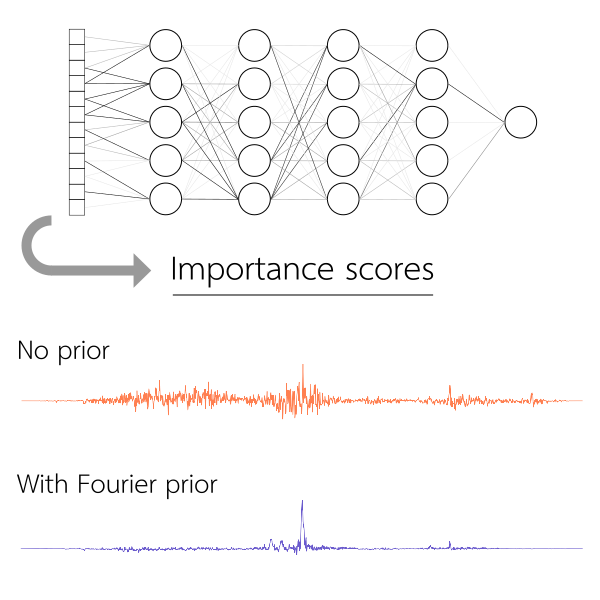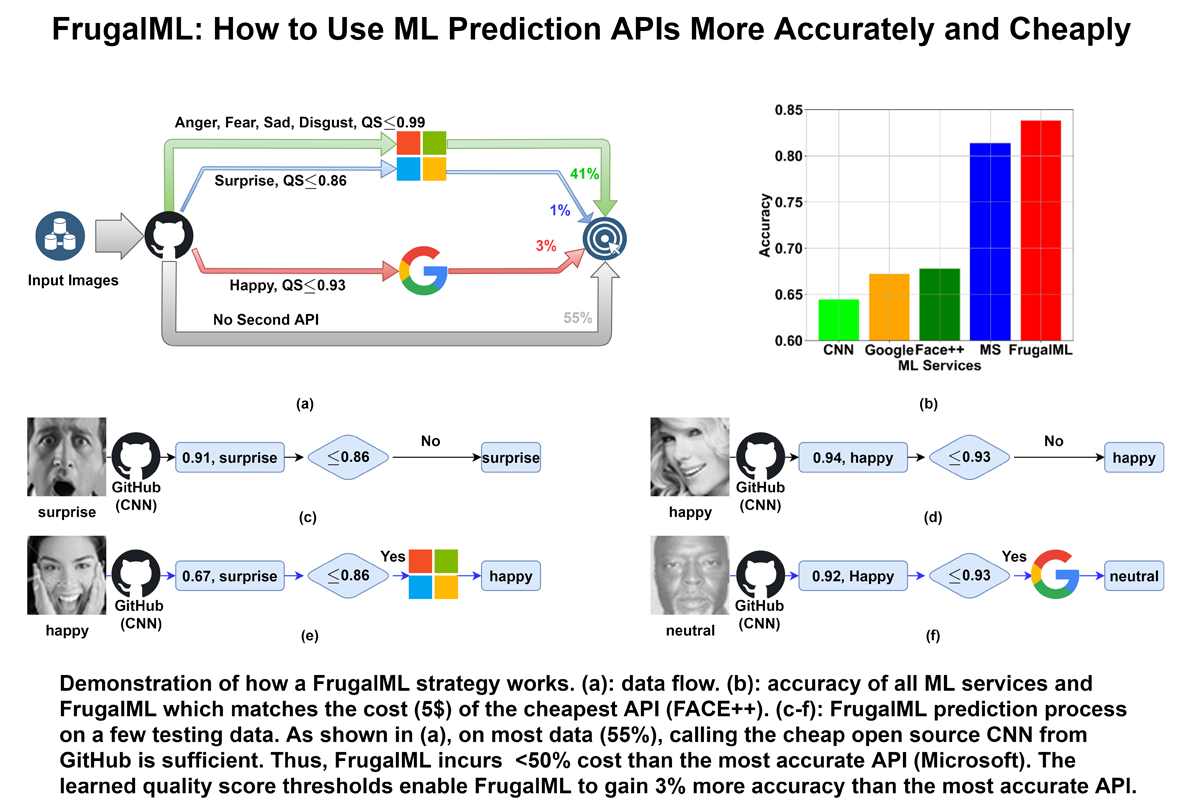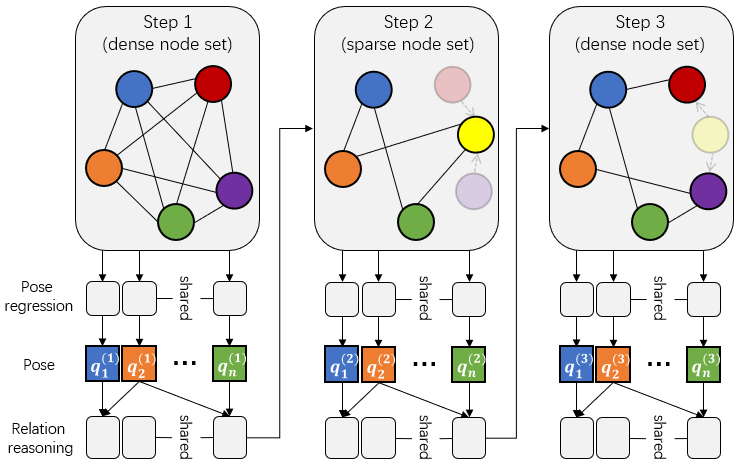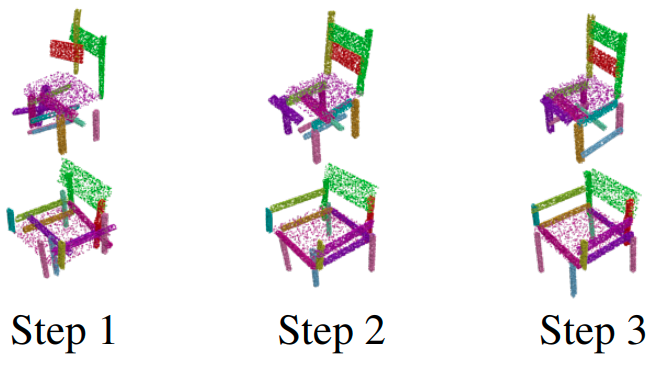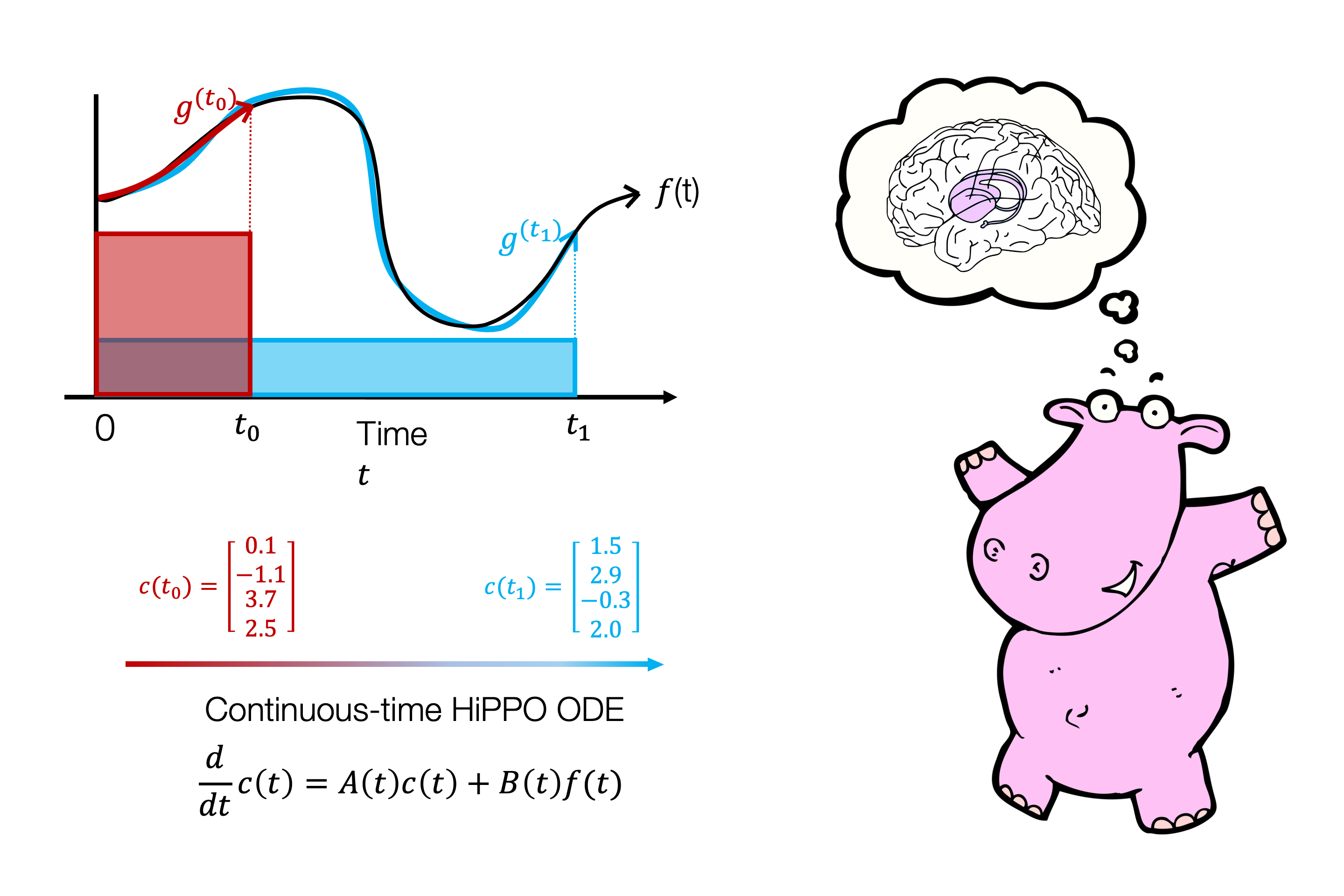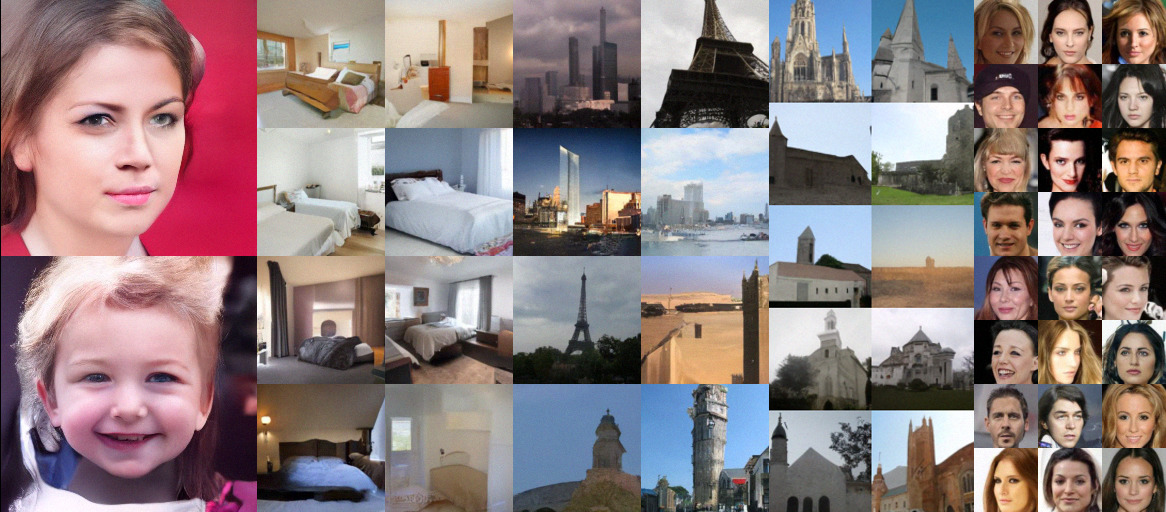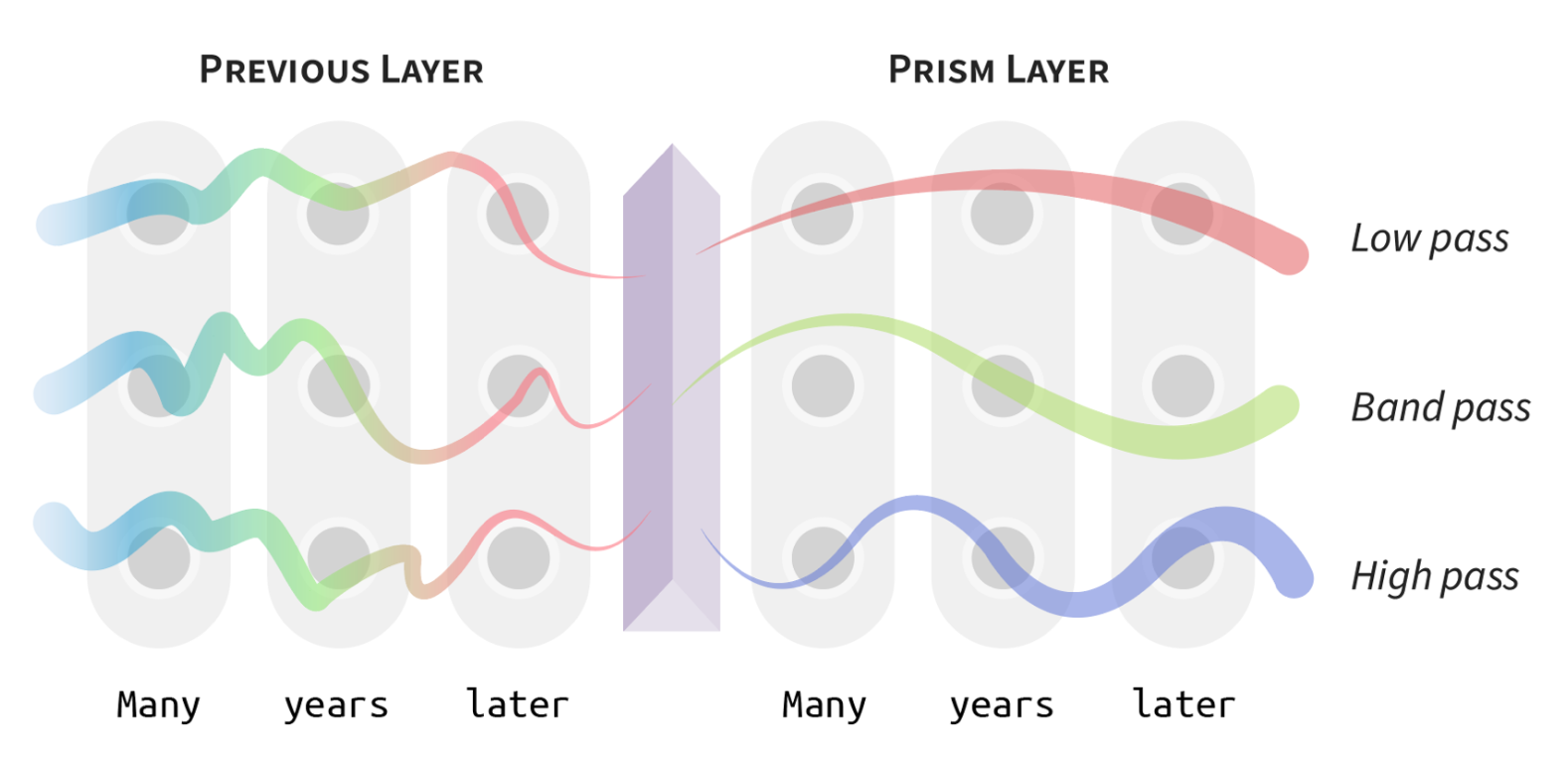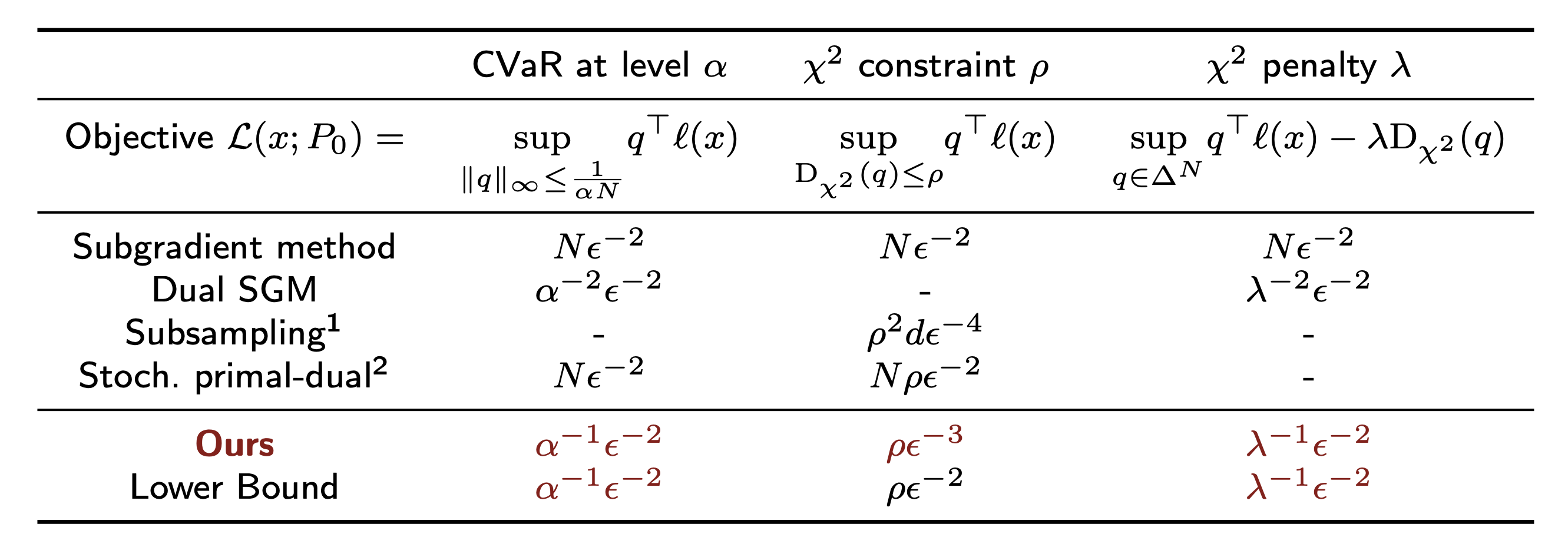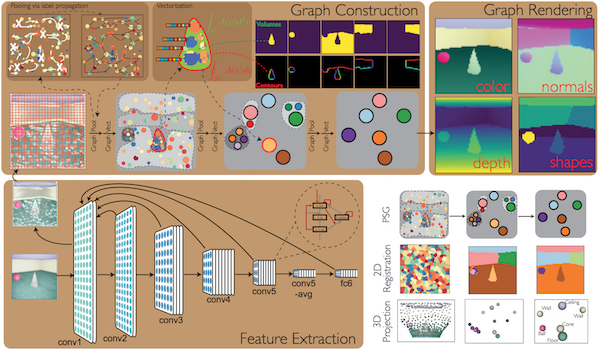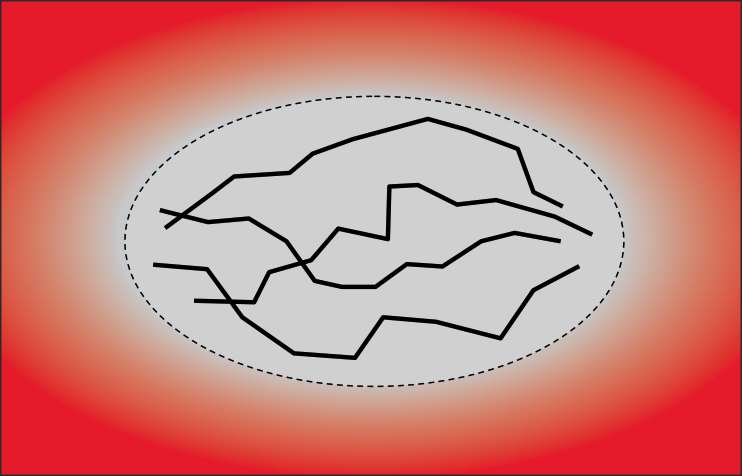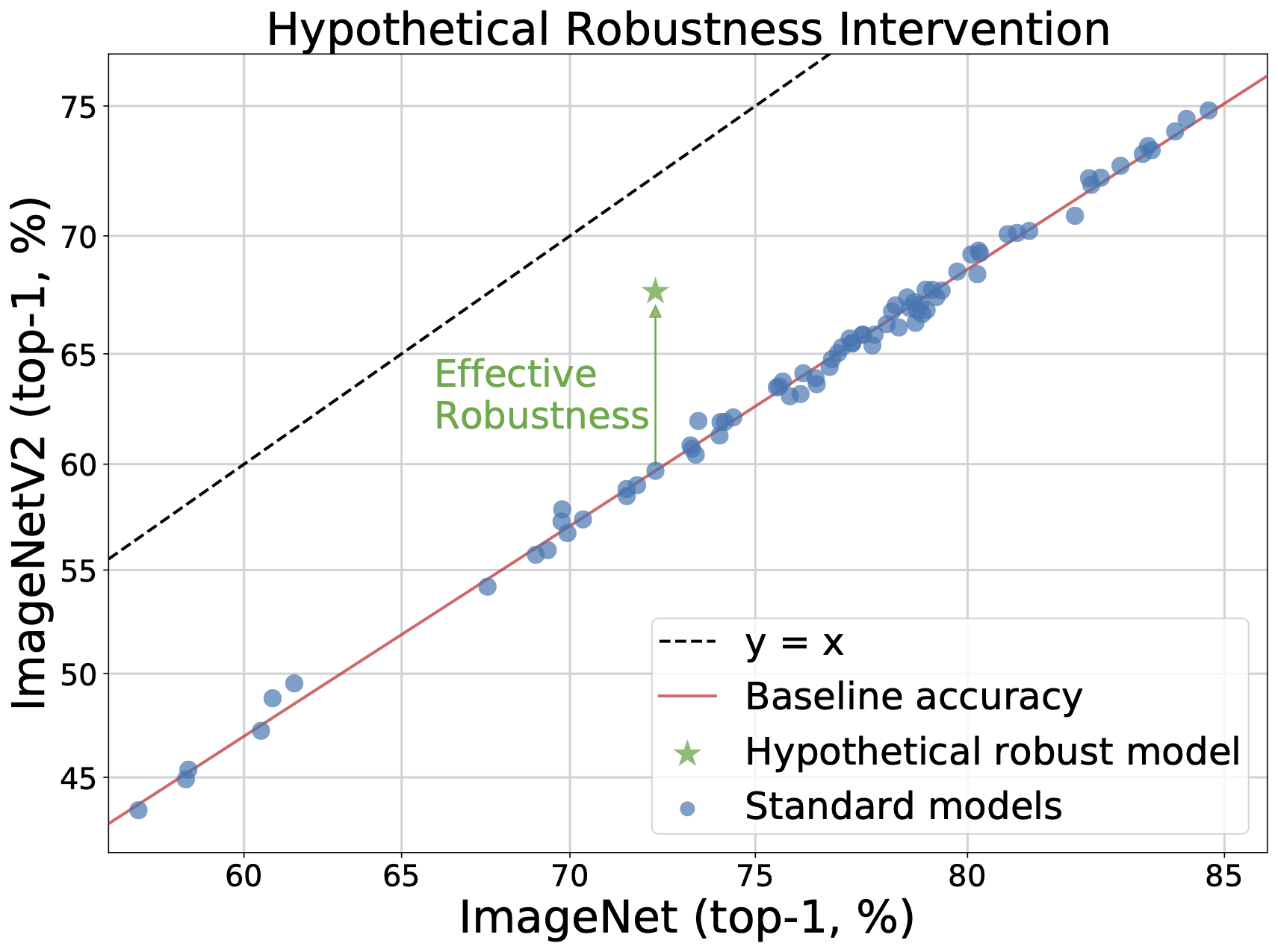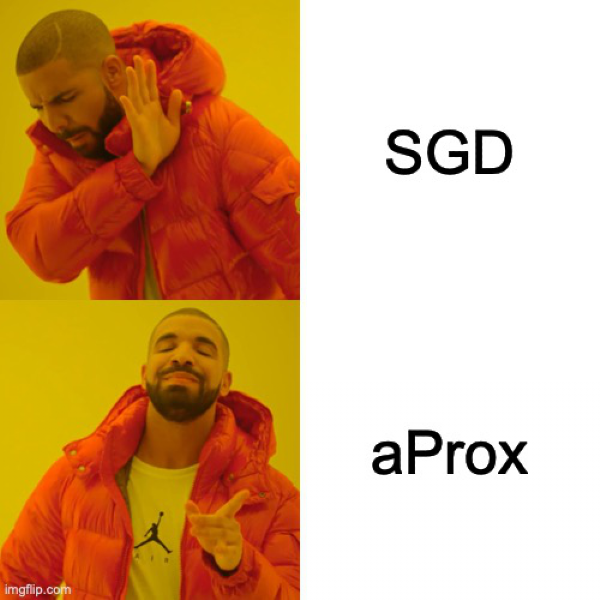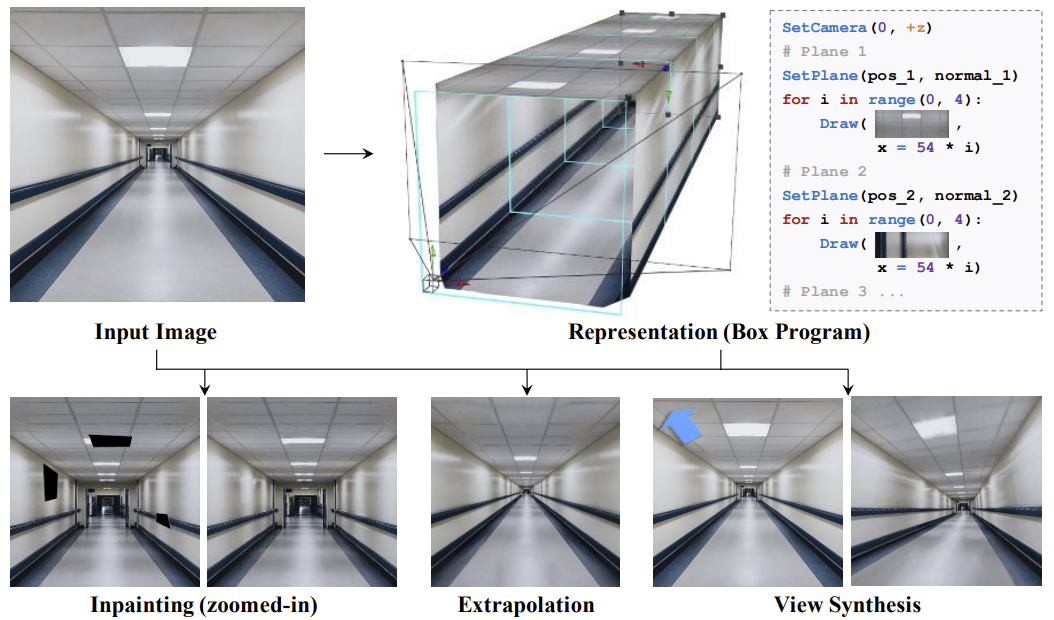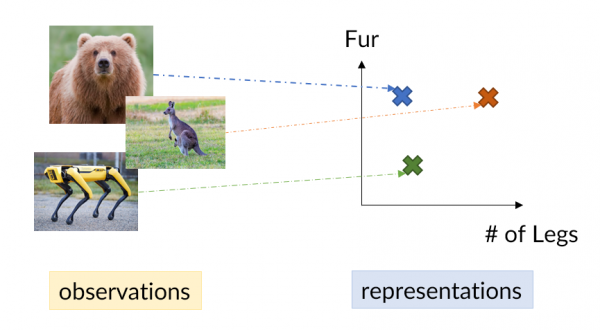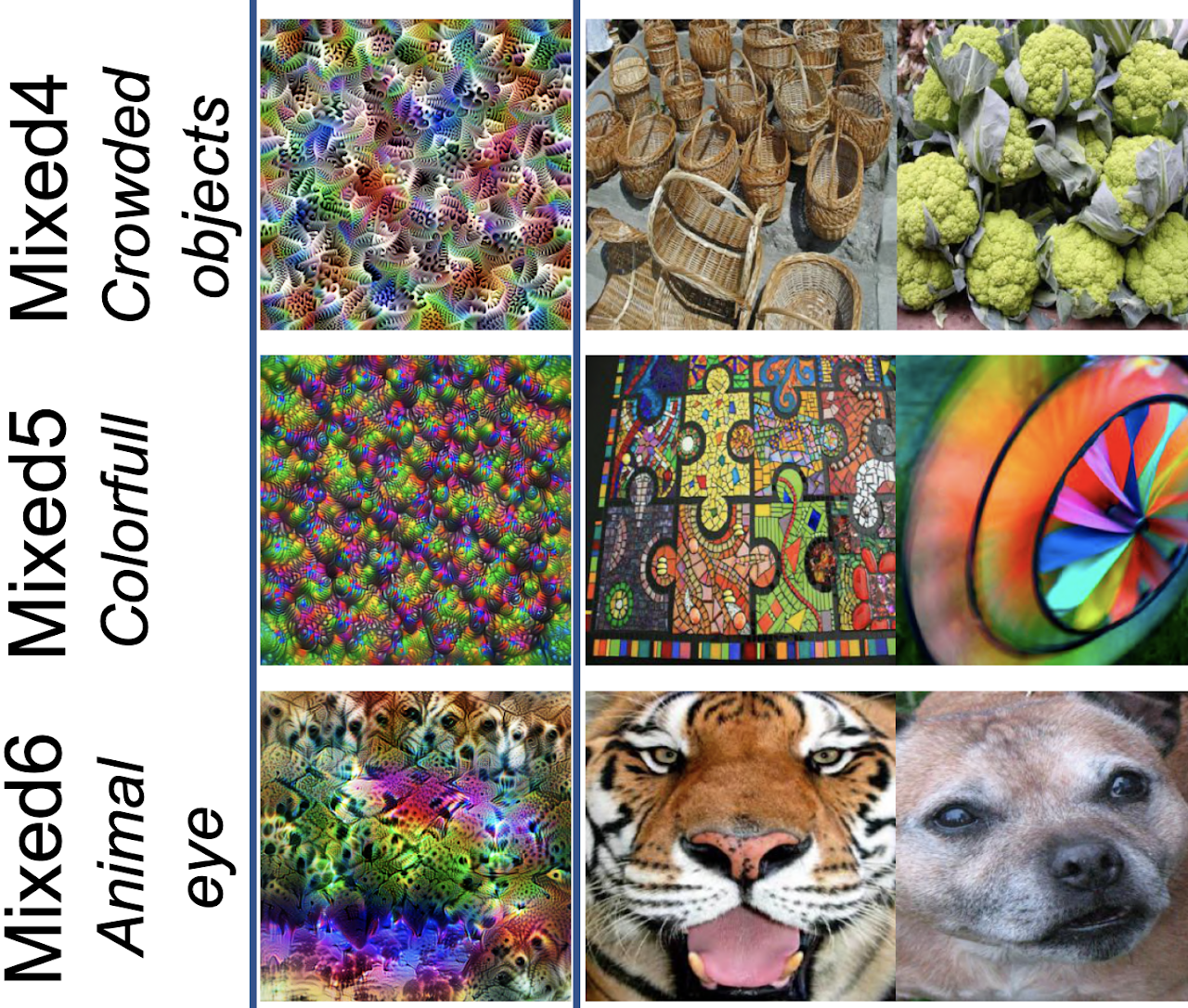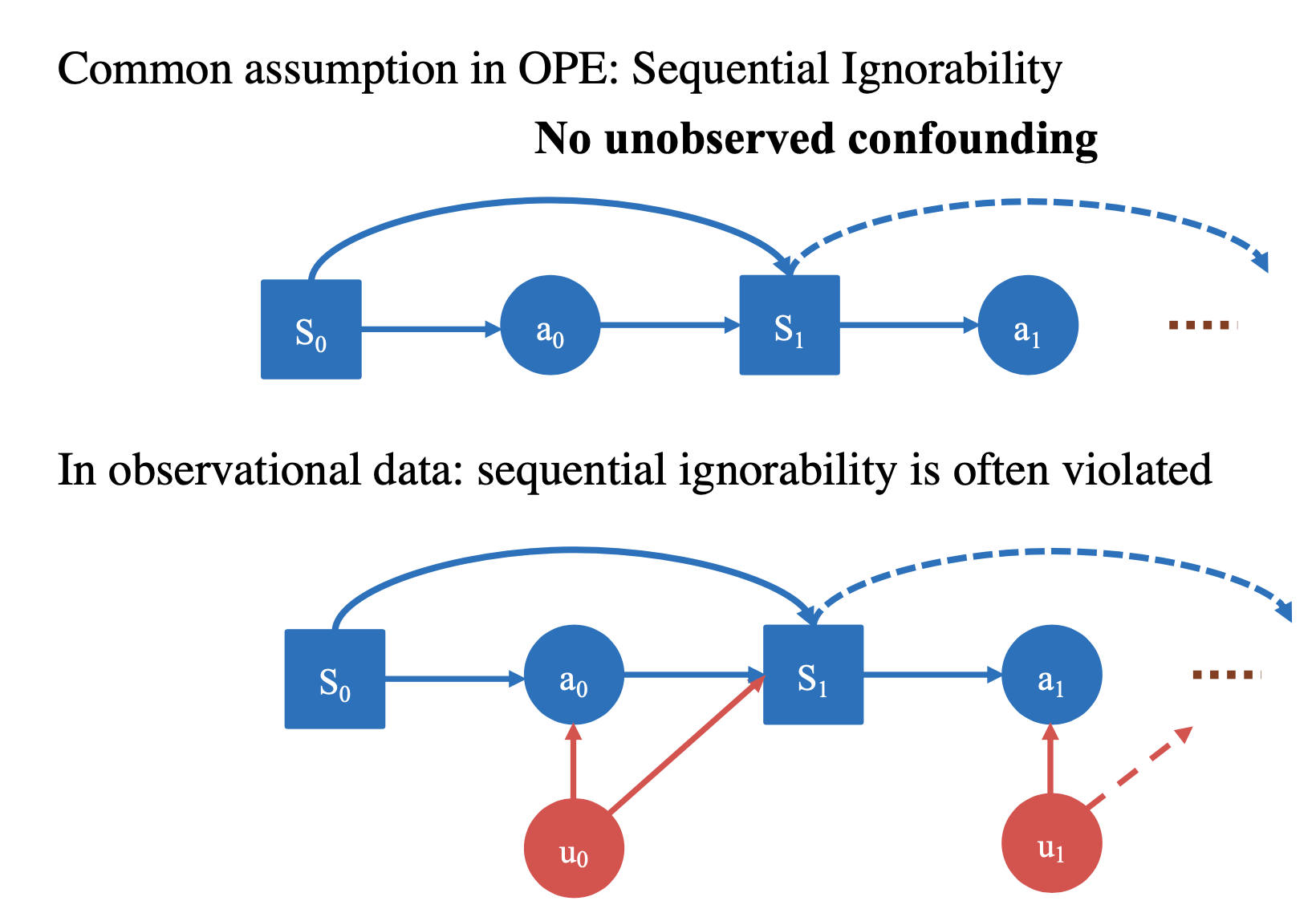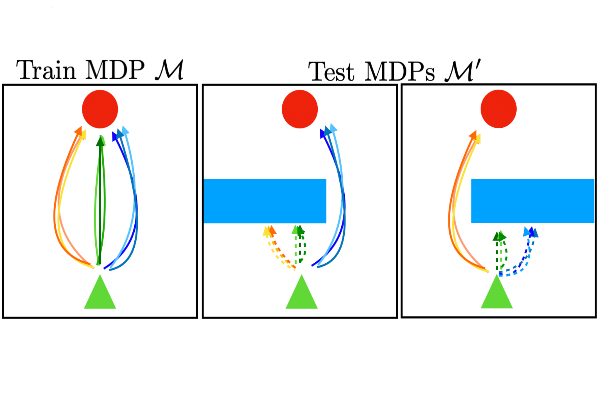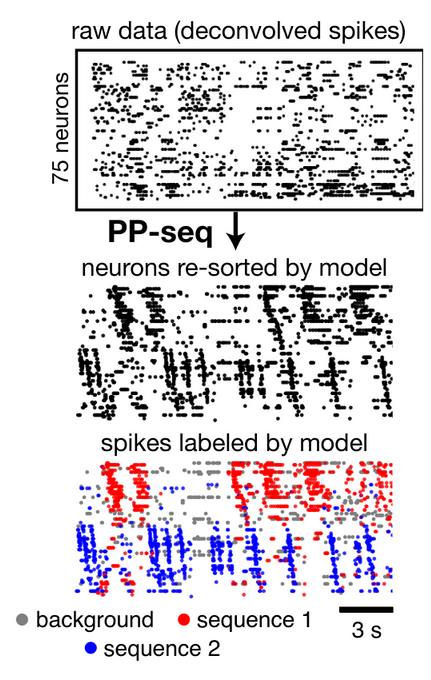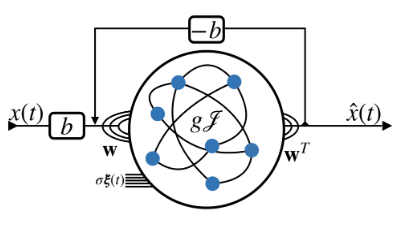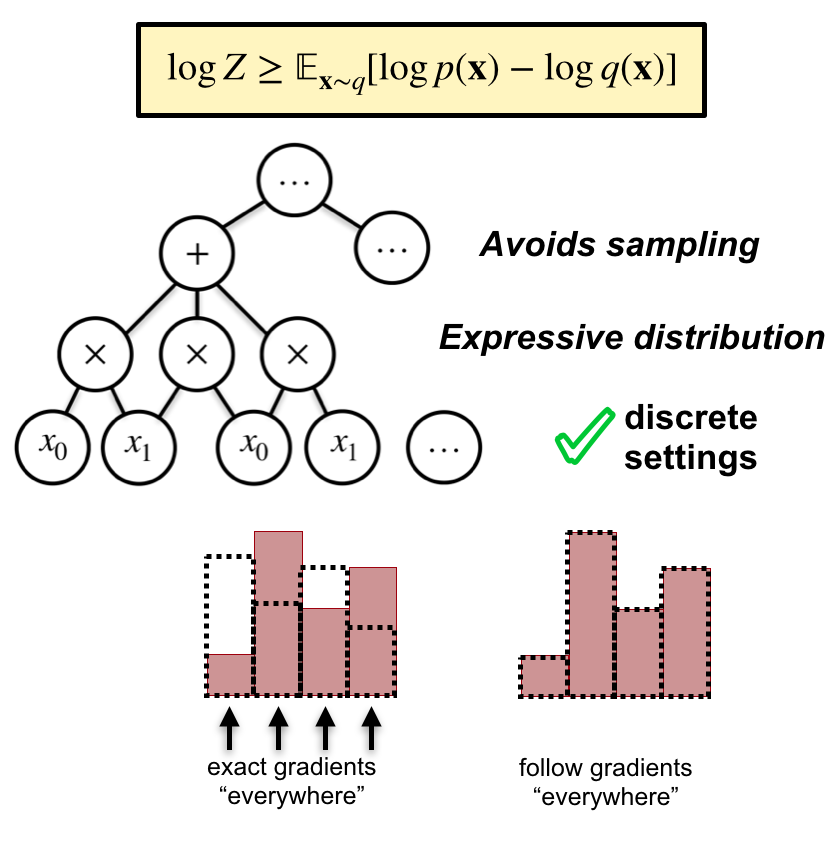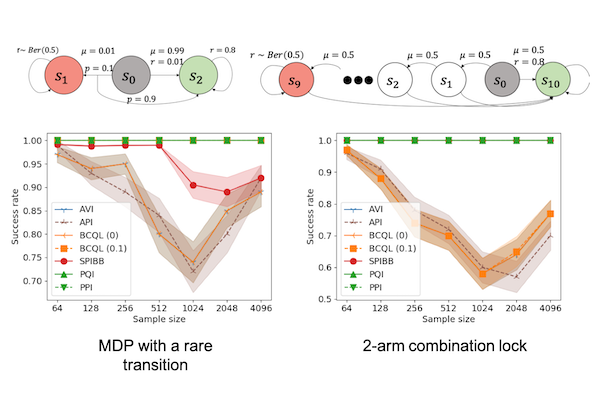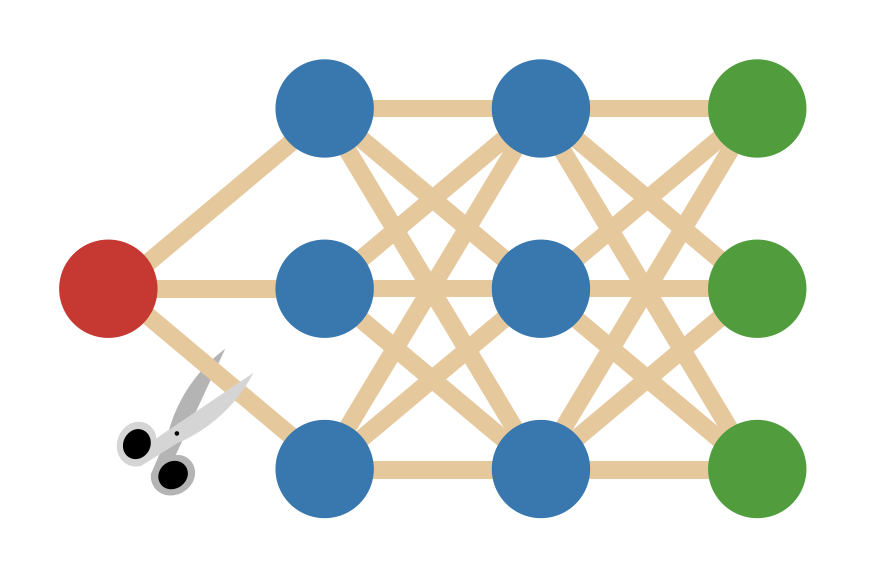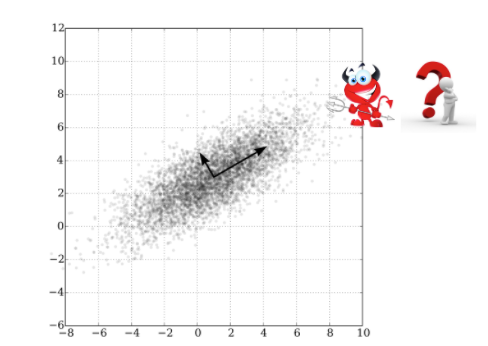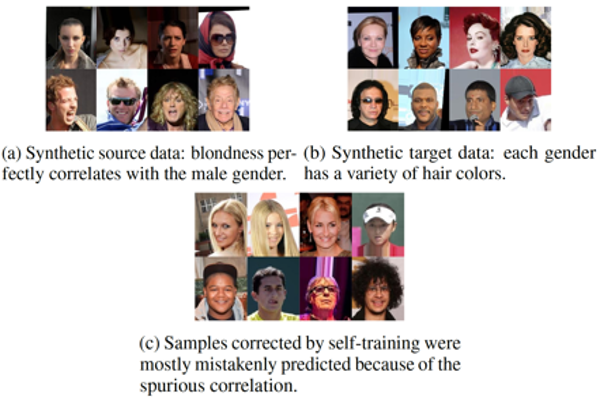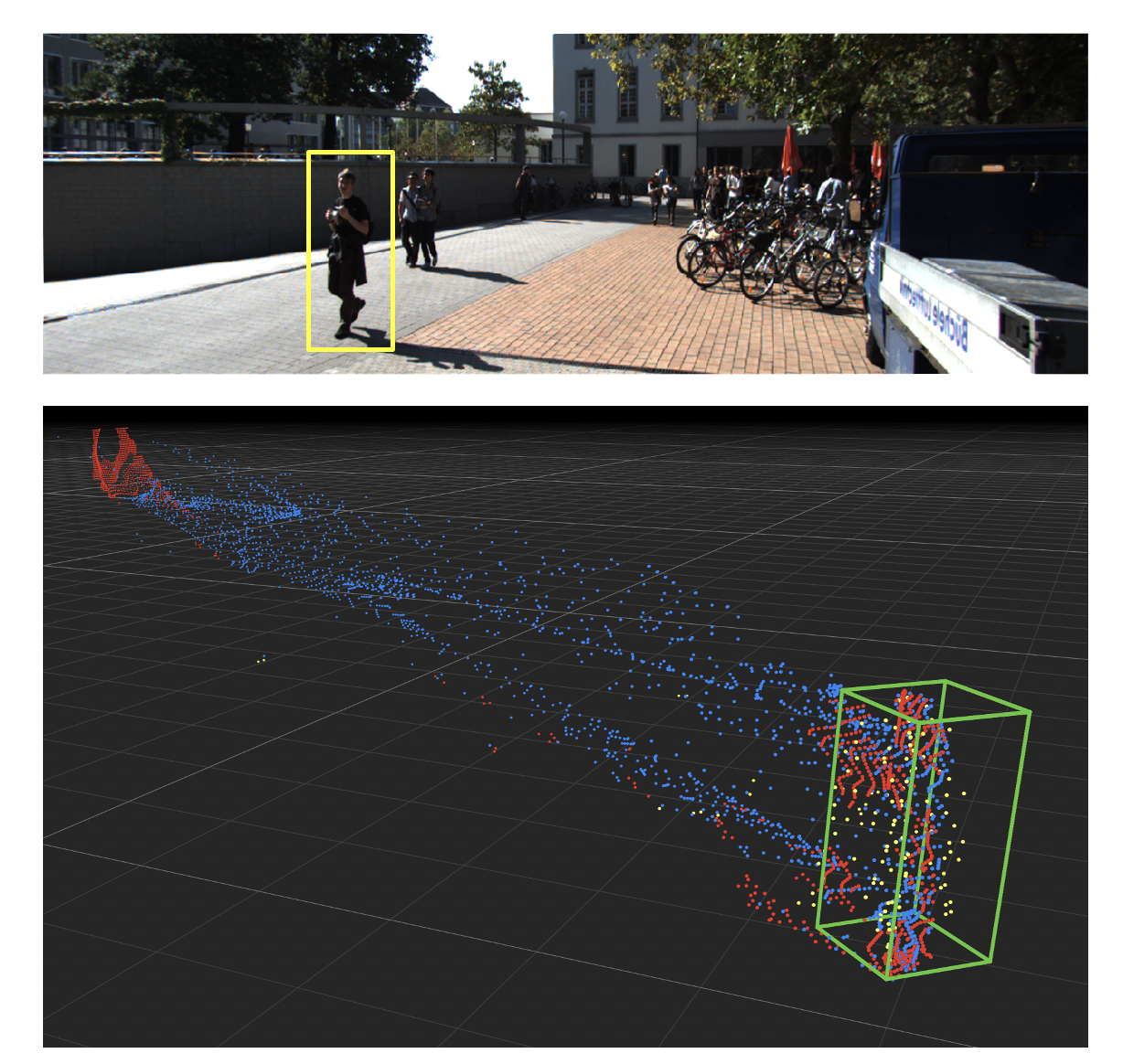
The Neural Information Processing Systems (NeurIPS) 2020 conference is being hosted virtually from Dec 6th – Dec 12th. We’re excited to share all the work from SAIL that’s being presented, and you’ll find links to papers, videos and blogs below. Feel free to reach out to the contact authors directly to learn more about the work that’s happening at Stanford!
List of Accepted Papers
Provably Efficient Reward-Agnostic Navigation with Linear Value Iteration
Authors: Andrea Zanette, Alessandro Lazaric, Mykel Kochenderfer, Emma Brunskill
Contact: zanette@stanford.edu
Keywords: reinforcement learning, function approximation, exploration
Acceleration with a Ball Optimization Oracle
Authors: Yair Carmon, Arun Jambulapati, Qijia Jiang, Yujia Jin, Yin Tat Lee, Aaron Sidford, Kevin Tian
Contact: kjtian@stanford.edu
Award nominations: Oral presentation
Links: Paper
Keywords: convex optimization, local search, trust region methods
BanditPAM: Almost Linear Time k-Medoids Clustering via Multi-Armed Bandits
Authors: Mo Tiwari, Martin Jinye Zhang, James Mayclin, Sebastian Thrun, Chris Piech, Ilan Shomorony
Contact: Motiwari@stanford.edu
Links: Paper | Video
Keywords: clustering, k-means, k-medoids, multi-armed bandits
CaSPR: Learning Canonical Spatiotemporal Point Cloud Representations
Authors: Davis Rempe, Tolga Birdal, Yongheng Zhao, Zan Gojcic, Srinath Sridhar, Leonidas J. Guibas
Contact: drempe@stanford.edu
Links: Paper | Video | Website
Keywords: 3d vision, dynamic point clouds, representation learning
Compositional Explanations of Neurons
Authors: Jesse Mu, Jacob Andreas
Contact: muj@stanford.edu
Award nominations: oral
Links: Paper
Keywords: interpretability, explanation, deep learning, computer vision, natural language processing, adversarial examples
Continuous Meta-Learning without Tasks
Authors: James Harrison, Apoorva Sharma, Chelsea Finn, Marco Pavone
Contact: jharrison@stanford.edu
Links: Paper
Keywords: meta-learning, continuous learning, changepoint detection
Deep learning versus kernel learning: an empirical study of loss landscape geometry and the time evolution of the Neural Tangent Kernel
Authors: Stanislav Fort, Gintare Karolina Dziugaite, Mansheej Paul, Sepideh Kharaghani, Daniel M. Roy, Surya Ganguli
Contact: sfort1@stanford.edu
Links: Paper
Keywords: loss landscape, neural tangent kernel, linearization, taylorization, basin, nonlinear advantage
Diversity can be Transferred: Output Diversification for White- and Black-box Attacks
Authors: Yusuke Tashiro, Yang Song, Stefano Ermon
Contact: ytashiro@stanford.edu
Links: Paper | Website
Keywords: adversarial examples, deep learning, robustness
Evidential Sparsification of Multimodal Latent Spaces in Conditional Variational Autoencoders
Authors: Masha Itkina, Boris Ivanovic, Ransalu Senanayake, Mykel J. Kochenderfer, and Marco Pavone
Contact: mitkina@stanford.edu
Links: Paper | Website
Keywords: sparse distributions, generative models, discrete latent spaces, behavior prediction, image generation
Federated Accelerated Stochastic Gradient Descent
Authors: Honglin Yuan, Tengyu Ma
Contact: yuanhl@stanford.edu
Award nominations: Best Paper Award of Federated Learning for User Privacy and Data Confidentiality in Conjunction with ICML 2020 (FL-ICML’20)
Links: Paper | Website
Keywords: federated learning, local sgd, acceleration, fedac
Fourier-transform-based attribution priors improve the interpretability and stability of deep learning models for genomics
Authors: Alex Michael Tseng, Avanti Shrikumar, Anshul Kundaje
Contact: amtseng@stanford.edu
Links: Paper | Website
Keywords: deep learning, interpretability, attribution prior, computational biology, genomics
From Trees to Continuous Embeddings and Back: Hyperbolic Hierarchical Clustering
Authors: Ines Chami, Albert Gu, Vaggos Chatziafratis, Christopher Re
Contact: chami@stanford.edu
Links: Paper | Video | Website
Keywords: hierarchical clustering, hyperbolic embeddings
FrugalML: How to Use ML Prediction APIs More Accurately and Cheaply
Authors: Lingjiao Chen; Matei Zaharia; James Zou
Contact: lingjiao@stanford.edu
Links: Paper | Blog Post | Website
Keywords: machine learning as a service, ensemble learning, meta learning, systems for machine learning
Generative 3D Part Assembly via Dynamic Graph Learning
Authors: Jialei Huang, Guanqi Zhan, Qingnan Fan, Kaichun Mo, Lin Shao, Baoquan Chen, Leonidas Guibas, Hao Dong
Contact: fqnchina@gmail.com
Links: Paper
Keywords: 3d part assembly, dynamic graph learning
Generative 3D Part Assembly via Dynamic Graph Learning
Authors: Jialei Huang*, Guanqi Zhan*, Qingnan Fan, Kaichun Mo, Lin Shao, Baoquan Chen, Leonidas J. Guibas, Hao Dong
Contact: kaichun@cs.stanford.edu
Links: Paper | Website
Keywords: 3d part assembly, graph neural network
Gradient Surgery for Multi-Task Learning
Authors: Tianhe Yu, Saurabh Kumar, Abhishek Gupta, Sergey Levine, Karol Hausman, Chelsea Finn
Contact: tianheyu@cs.stanford.edu
Links: Paper | Website
Keywords: multi-task learning, deep reinforcement learning
HiPPO: Recurrent Memory with Optimal Polynomial Projections
Authors: Albert Gu*, Tri Dao*, Stefano Ermon, Atri Rudra, Chris Ré
Contact: albertgu@stanford.edu, trid@stanford.edu
Links: Paper | Blog Post
Keywords: representation learning, time series, recurrent neural networks, lstm, orthogonal polynomials
Identifying Learning Rules From Neural Network Observables
Authors: Aran Nayebi, Sanjana Srivastava, Surya Ganguli, Daniel L.K. Yamins
Contact: anayebi@stanford.edu
Award nominations: Spotlight Presentation
Links: Paper | Website
Keywords: computational neuroscience, learning rule, deep networks
Improved Techniques for Training Score-Based Generative Models
Authors: Yang Song, Stefano Ermon
Contact: songyang@stanford.edu
Links: Paper
Keywords: score-based generative modeling, score matching, deep generative models
Language Through a Prism: A Spectral Approach for Multiscale Language Representations
Authors: Alex Tamkin, Dan Jurafsky, Noah Goodman
Contact: atamkin@stanford.edu
Links: Paper
Keywords: bert, signal processing, self-supervised learning, interpretability, multiscale
Large-Scale Methods for Distributionally Robust Optimization
Authors: Daniel Levy, Yair Carmon, John Duchi, Aaron Sidford
Contact: danilevy@stanford.edu
Links: Paper
Keywords: robustness dro optimization large-scale optimal
Learning Physical Graph Representations from Visual Scenes
Authors: Daniel Bear, Chaofei Fan, Damian Mrowca, Yunzhu Li, Seth Alter, Aran Nayebi, Jeremy Schwartz, Li F. Fei-Fei, Jiajun Wu, Josh Tenenbaum, Daniel L. Yamins
Contact: dbear@stanford.edu
Links: Paper | Blog Post | Website
Keywords: structure learning, graph learning, visual scene representations, unsupervised learning, unsupervised segmentation, object-centric representation, intuitive physics
MOPO: Model-based Offline Policy Optimization
Authors: Tianhe Yu*, Garrett Thomas*, Lantao Yu, Stefano Ermon, James Zou, Sergey Levine, Chelsea Finn, Tengyu Ma
Contact: tianheyu@cs.stanford.edu
Links: Paper | Website
Keywords: offline reinforcement learning, model-based reinforcement learning
MOPO: Model-based Offline Policy Optimization
Authors: Tianhe Yu, Garrett Thomas, Lantao Yu, Stefano Ermon, James Zou, Sergey Levine, Chelsea Finn, Tengyu Ma
Contact: tianheyu@cs.stanford.edu,gwthomas@stanford.edu
Links: Paper
Keywords: model-based rl, offline rl, batch rl
Measuring Robustness to Natural Distribution Shifts in Image Classification
Authors: Rohan Taori, Achal Dave, Vaishaal Shankar, Nicholas Carlini, Benjamin Recht, Ludwig Schmidt
Contact: rtaori@stanford.edu
Award nominations: Spotlight
Links: Paper | Website
Keywords: machine learning, robustness, image classification
Minibatch Stochastic Approximate Proximal Point Methods
Authors: Hilal Asi, Karan Chadha, Gary Cheng, John Duchi
Contact: chenggar@stanford.edu
Award nominations: Spotlight talk
Links: Paper
Keywords: stochastic optimization, sgd, aprox
Model-based Adversarial Meta-Reinforcement Learning
Authors: Zichuan Lin, Garrett Thomas, Guangwen Yang, Tengyu Ma
Contact: lzcthu12@gmail.com,gwthomas@stanford.edu
Links: Paper
Keywords: model-based rl, meta-rl, minimax
Multi-Plane Program Induction with 3D Box Priors
Authors: Yikai Li, Jiayuan Mao, Xiuming Zhang, William T. Freeman, Joshua B. Tenenbaum, Noah Snavely, Jiajun Wu
Contact: jiajunwu@cs.stanford.edu
Links: Paper | Video | Website
Keywords: visual program induction, 3d vision, image editing
Multi-label Contrastive Predictive Coding
Authors: Jiaming Song, Stefano Ermon
Contact: jiaming.tsong@gmail.com
Links: Paper
Keywords: representation learning, mutual information
Neuron Shapley: Discovering the Responsible Neurons
Authors: Amirata Ghorbani, James Zou
Contact: amiratag@stanford.edu
Links: Paper
Keywords: interpretability, deep learning, shapley value
No Subclass Left Behind: Fine-Grained Robustness in Coarse-Grained Classification Problems
Authors: Nimit Sharad Sohoni, Jared Alexander Dunnmon, Geoffrey Angus, Albert Gu, Christopher Ré
Contact: nims@stanford.edu
Links: Paper | Blog Post | Video
Keywords: classification, robustness, clustering, neural feature representations
Off-policy Policy Evaluation For Sequential Decisions Under Unobserved Confounding
Authors: Hongseok Namkoong, Ramtin Keramati, Steve Yadlowsky, Emma Brunskill
Contact: keramati@stanford.edu
Links: Paper
Keywords: off-policy policy evaluation, unobserved confounding, reinforcement learning
One Solution is Not All You Need: Few-Shot Extrapolation via Structured MaxEnt RL
Authors: Saurabh Kumar, Aviral Kumar, Sergey Levine, Chelsea Finn
Contact: szk@stanford.edu
Links: Paper
Keywords: robustness, diversity, reinforcement learning
Point process models for sequence detection in high-dimensional neural spike trains
Authors: Alex H. Williams, Anthony Degleris, Yixin Wang, Scott W. Linderman
Contact: ahwillia@stanford.edu
Award nominations: Selected for Oral Presentation
Links: Paper | Website
Keywords: bayesian nonparametrics, unsupervised learning
Predictive coding in balanced neural networks with noise, chaos and delays
Authors: Jonathan Kadmon, Jonathan Timcheck, Surya Ganguli
Contact: kadmonj@stanford.edu
Links: Paper
Keywords: neuroscience, predictive coding, chaos
Probabilistic Circuits for Variational Inference in Discrete Graphical Models
Authors: Andy Shih, Stefano Ermon
Contact: andyshih@stanford.edu
Links: Paper
Keywords: variational inference, discrete, high-dimensions, sum product networks, probabilistic circuits, graphical models
Provably Good Batch Off-Policy Reinforcement Learning Without Great Exploration
Authors: Yao Liu, Adith Swaminathan, Alekh Agarwal, Emma Brunskill.
Contact: yaoliu@stanford.edu
Links: Paper
Keywords: reinforcement leanring, off-policy, batch reinforcement learning
Pruning neural networks without any data by iteratively conserving synaptic flow
Authors: Hidenori Tanaka, Daniel Kunin, Daniel L. K. Yamins, Surya Ganguli
Contact: kunin@stanford.edu
Links: Paper | Video | Website
Keywords: network pruning, sparse initialization, lottery ticket
Robust Sub-Gaussian Principal Component Analysis and Width-Independent Schatten Packing
Authors: Arun Jambulapati, Jerry Li, Kevin Tian
Contact: kjtian@stanford.edu
Award nominations: Spotlight presentation
Links: Paper
Keywords: robust statistics, principal component analysis, positive semidefinite programming
Self-training Avoids Using Spurious Features Under Domain Shift
Authors: Yining Chen*, Colin Wei*, Ananya Kumar, Tengyu Ma (*equal contribution)
Contact: cynnjjs@stanford.edu
Links: Paper
Keywords: self-training, pseudo-labeling, domain shift, robustness
Wasserstein Distances for Stereo Disparity Estimation
Authors: Divyansh Garg, Yan Wang, Bharath Hariharan, Mark Campbell, Kilian Q. Weinberger, Wei-Lun Chao
Contact: divgarg@stanford.edu
Award nominations: Spotlight
Links: Paper | Video | Website
Keywords: depth estimation, disparity estimation, autonomous driving, 3d object detection, statistical learning
We look forward to seeing you at NeurIPS2020!

